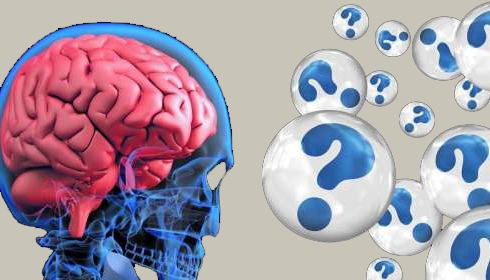
New Blood Biomarkers Offer Promise in Early Alzheimer’s Diagnosis: Study
The failure to diagnose Alzheimer’s disease at the early stages of its molecular pathology is seen as a major factor in the failure of treatments during clinical trials. A groundbreaking new approach may change that. Two recent papers published in Alzheimer’s & Dementia: The Journal of the Alzheimer's Association reveal that blood-based biomarkers, specifically plasma microRNAs (miRNAs), could revolutionize the diagnosis and treatment of Alzheimer’s by identifying the disease years before it manifests clinically.
Genetic and environmental factors combine to cause Alzheimer's, the most common type of dementia among the elderly. Previously, diagnosis relied on identifying specific proteins in the brain, such as β-amyloid ("A"), tau ("T"), and neurodegeneration ("N"). Invasive approaches like brain imaging or cerebrospinal fluid analysis can be used to measure these biomarkers, generally known as "A/T/N.". However, they only detect the disease after major harm has occurred.
Dr. Ivana Delalle, a pathology professor at Boston University, explained the limitations: "Our discovery is important because, unlike the current A/T/N biomarkers, microRNAs may serve as blood molecular biomarkers years before Alzheimer's disease manifests clinically, thus identifying the time window for effective prevention or early intervention to stop the progression of Alzheimer's."
The new research emphasizes the potential of miRNAs—molecules that regulate gene expression and affect brain activities that deteriorate in Alzheimer's disease—as a less invasive, more accessible alternative to conventional diagnostics. Researchers from Boston University, Indiana University School of Medicine, and the German Centre for Neurodegenerative Diseases (DZNE) discovered that particular plasma miRNAs can predict the progression of moderate cognitive impairment (MCI) to Alzheimer's dementia. This could lead to early-stage intervention, which is currently lacking in Alzheimer's treatment.
These findings are significant because MCI frequently precedes Alzheimer's, although not all people with MCI get dementia. Doctors may be able to use miRNAs to determine which patients are more likely to get the full-blown disease.
The investigations are the outcome of extensive worldwide collaboration. The researchers used plasma samples from participants in the Alzheimer's Disease Neuroimaging Initiative (ADNI), which includes simulated clinical trials at 60 medical centres in the United States and Canada. Andre Fischer, a professor of epigenetics at DZNE, emphasised the significance of miRNAs as diagnostic tools, stating, "MicroRNAs are ideal biomarkers because they are not only very stable but also control entire molecular pathways, ensuring cellular homeostasis."
According to the researchers, miRNAs could help detect Alzheimer's early and provide new insights into its underlying mechanisms. "These findings provide a path towards a better understanding of the molecular mechanisms driving plaques, tangles, and atrophy and may provide clues for the next generation of therapeutic targets," said Dr. Andrew J. Saykin, an Indiana University radiology professor.
The researchers suggest that plasma miRNAs could potentially enhance the affordability and accessibility of Alzheimer's screening in a typical point-of-care scenario. "Our studies are an important step in this direction," Fischer said, adding that miRNAs' capacity to reflect complex pathological alterations like neuroinflammation and synapse failure makes them an ideal biomarker for Alzheimer's.
Delalle, Fischer, and their colleagues emphasised that this discovery could pave the way for future medicines that target Alzheimer's at an early stage, before the illness causes irreversible brain damage.
However, like with any pathbreaking discovery, there are challenges to overcome before these discoveries may be applied in clinical practice. The miRNA signatures must be confirmed and converted into simple, assay-based formats for use in routine diagnostics. Dr. Kwangsik Nho, a radiology professor at Indiana University, expressed optimism about the future of this research, saying, "We envision that once specific miRNA signatures are further confirmed, the analysis of blood miRNAs will be transferred to simple assay formats, enabling the adoption of blood miRNAome analysis in clinical practice."
Researchers have identified plasma microRNAs as early indicators for Alzheimer's disease, marking a significant milestone in neurodegenerative research. If proven in subsequent research, this strategy could significantly improve early detection and preventive strategies, potentially altering the path of Alzheimer's treatment. MiRNA biomarkers, by allowing for earlier identification, may potentially delay or prevent the onset of dementia, giving hope to millions impacted by this horrible disease.